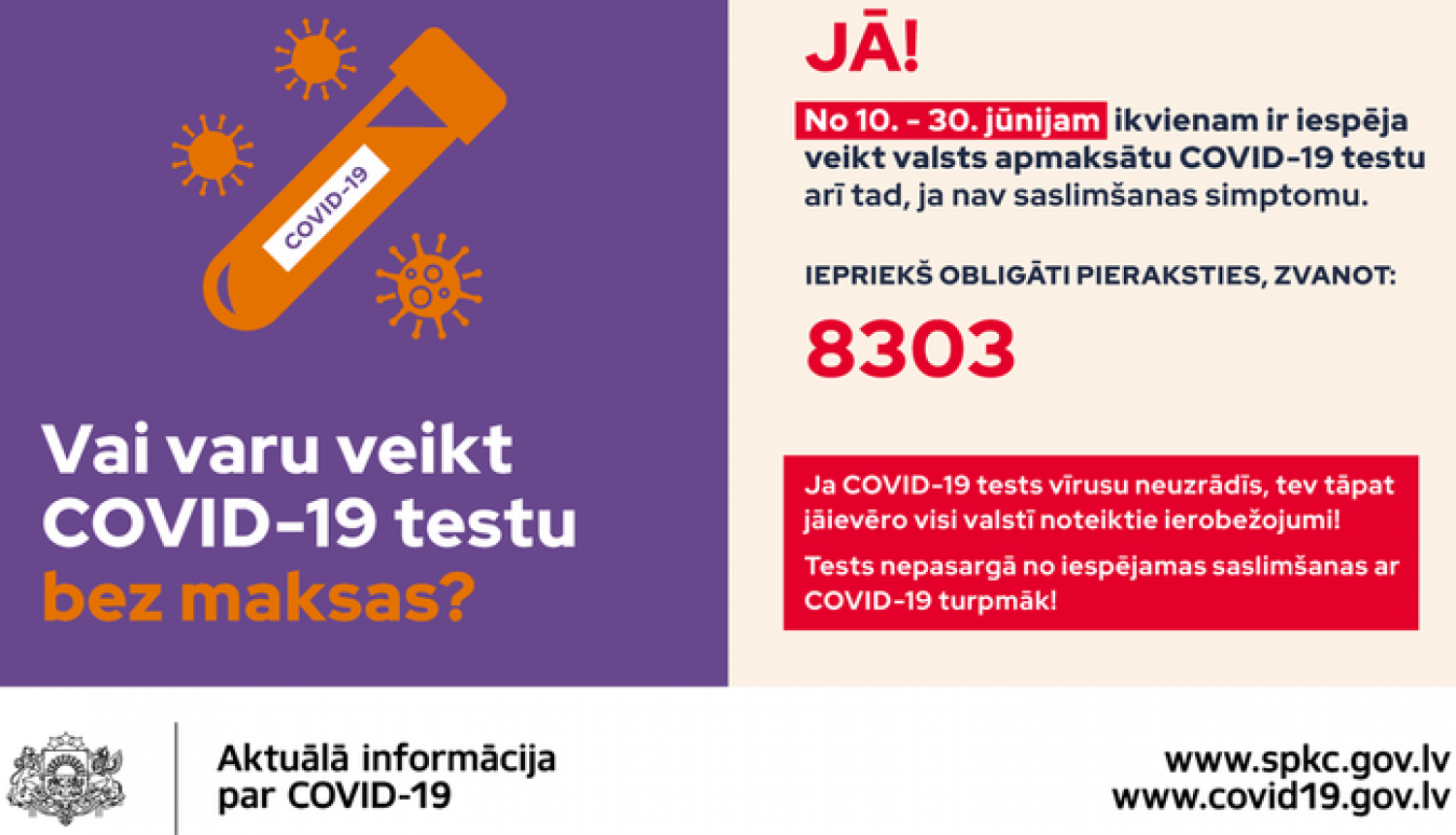In order to be able to continue testing for Covid-19, ensure remote consultations, and enforce other requirements after the end of the state of emergency, today, on 9 June, the government confirmed the relevant provisions in the regulations of the Cabinet of Ministers* which will remain in force until the end of this year.
The practice of providing medical consultations to patients remotely during the state of emergency has proven effective, so it was decided to continue such practice. Doctors will be allowed to assess whether remote consultation is possible or whether it is necessary to assess the patient's state of health in person also in the future. The patient will not have to pay for the remote consultation.
The regulations also lay out the payment procedure for continuing the performance of Covid-19 diagnostics. As before, a wide range of persons will be able to be tested for Covid-19 for free until the end of the year, following the usual order. Moreover, from 10 June to 30 June, everyone has the opportunity to be tested for Covid-19 for free, even if they show no symptoms. It is mandatory to make an appointment in advance by calling 8303 on weekdays from 8:00 to 20:00, on Saturdays from 9:00 to 15:00, or on Sundays from 9:00 to 12:00. Such a decision was taken in order to ensure that, after the state of emergency has been lifted and with the restrictions eased, society would still be tested extensively, thus allowing for the timely detection of a possible outbreak of the disease. If a person shows no symptoms, that person is allowed to arrive to the testing point by bicycle, on foot, or by public transport, using a mask. If a person shows symptoms of the disease, we suggest that the person first contacts their GP, who will advise them on the necessary treatment and refer them to be tested for Covid-19.
The state will pay for the costs related to the treatment of Covid-19 also in the future (patient transfer, time at a hospital, treatment, etc.)
The list of cases for which a GP’s home visits will be paid for has also been extended. The state will pay for a GP’s visit to the patient's home if the patient is experiencing exacerbation of a chronic illness, but if the SEMS (NMPD) has not deemed the situation to be life-threatening.
The government also decided on a solution for cases where, during the state of emergency, it was planned for a child to receive state-paid dental services shortly before they turned 18, but the services were refused at the time and the child has now reached the age of majority. If at that time there was an appointment that was refused, these persons will be able to receive the state-paid service until 31 August. A similar principle applies to state-paid medical insemination, as there is a set age limit for women who want to receive this service. If a person was refused the service during the state of emergency, even though they had reached their turn in the waiting list, and if they no longer meet the required age, they will still be able to receive the service, starting the medical insemination process by the end of August.
Today, the government also clarified the regulations of the Cabinet of Ministers**, which stipulate that a child's participation in any camp requires a certificate that has been issued by a GP no later than seven days before the start of the camp. The GP assesses the child's health and there is no need to send the child to be tested for Covid-19.
*Amendments to Cabinet Regulation No.555 of 28 August, 2018, “Procedures for Organisation and Payment of Health Care Services”
**Amendments to Cabinet Regulation No.981 of 1 September, 2009, "Procedures for Organisation and Operation of Children's Camps"
Anna Strapcāne
Communication Specialist of the Ministry of Health
Telephone: +371 67876106; +371 20388356
e-mail: anna.strapcane@vm.gov.lv



